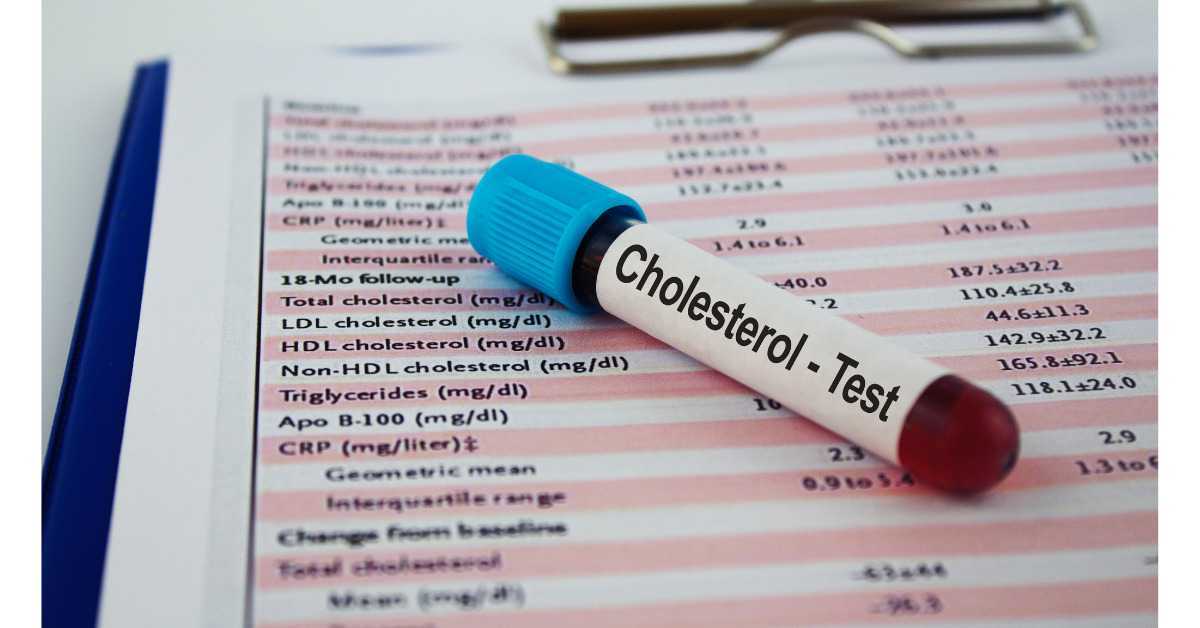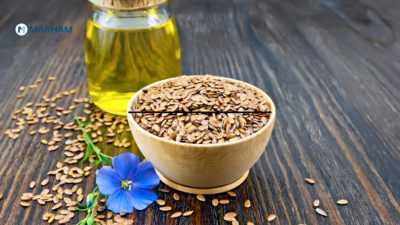Flaxseed oil for cholesterol has vast implications. For thousands of years, flaxseed has served as both a food and medicine in Indian and Chinese medicine (Patwardhan, Vaidya, and Chorghade 2004).
Flaxseed has gained popularity as a functional food component due to its high levels of alpha-linolenic acid (omega-3 fatty acid), lignans (phytoestrogens), and lignin (fiber). All of which have a strong link with improved cardiovascular health.
Studies have shown that flaxseed lignans, a class of chemical compounds found in plants with preventative health benefits, can help lower cholesterol levels.
We Need Good Cholesterol
The liver, just like most body cells, releases cholesterol. The blood travels by lipoproteins, which are microscopic ‘commuters.’
A small level of blood cholesterol is sufficient since the body uses it to:
- Build the structure of cell membranes
- Develop hormones such as estrogen, testosterone, and adrenaline
- keep your metabolism work efficiently; for example, cholesterol is essential for your body to produce vitamin D
- Bile acids assist efforts in the digestion of fat and absorb crucial nutrients.


How Does Flaxseed Oil Help in Cholesterol Control?
Several types of research have shown that flax (Linum usitatissimum) seeds have their potential health advantages, including cardiovascular disease prevention (CVD).
Flaxseed may reduce CVD risk by improving lipid levels somewhat. Antioxidant and hypocholesterolemic effects of soluble fiber, lignin, and high-linolenic acid (ALA) concentration are triggering factors.
According to preliminary studies, eating flaxseed oil daily for three months decreases total cholesterol in patients with high cholesterol. However, this initial research appears questionable.
According to more trustworthy studies, flaxseed oil does not lower cholesterol levels in those with high cholesterol and triglycerides. It works efficiently to lower the low-density lipoprotein (LDL or “bad”) cholesterol in persons with at least one risk factor for heart disease combined with safflower oil. However, the mixture of oils did not appear to be as effective as canola oil supplemented with docosahexaenoic acid (DHA).
Flaxseed oil for cholesterol and heart health
Although cholesterol is important for the number of quality cells, high cholesterol levels can worsen the symptoms of the disease.
If you have elevated cholesterol, you may have fatty deposits in your blood vessels. Ultimately, these deposits stack up to the point where blood flow through your arteries faces restrictions. These deposits can collapse and create a clot, which can lead to a heart attack or stroke.
High cholesterol is possible to pass on the generations after generations, but it’s more typically the result of poor lifestyle choices, making it avoidable and curable.
Men and women who eat more alpha-linolenic acid in their diet appear to have a lower risk of heart attacks. In addition, increasing alpha-linolenic acid consumption in the diet seems to lower the risk of a second heart attack in people who have already had one.
Moreover, persons who consume more alpha-linolenic acid in their diet seem to be less likely to die from heart disease. Alpha-linolenic acid is present in flaxseed oil. However, you can not find any direct research on the impact of flaxseed oil consumption on heart disease outcomes.


Blood Pressure and Cholesterol Caused by Flaxseed Oil
Hypertension (high blood pressure) and high cholesterol have strong bonding. When cholesterol, plaque, and calcium build up in the arteries, the heart works significantly harder to pump blood through them (atherosclerosis). As a result, blood pressure rises to dangerously high levels.
The data is mixed when it comes to the benefits of flaxseed oil on blood pressure. According to population studies, consuming more flaxseed oil in one’s diet leads to a decreased chance of having high blood pressure. In addition, some initial research shows that flaxseed oil supplements can help men with high cholesterol and normal blood pressure reduce their blood pressure.
Possible Risks
Gas and bloating are two possible side effects of flaxseed oil.
According to the National Center for Complementary and Integrative Health, flaxseed oil is generally safe to eat in tiny doses.
It depends on the amount of dosage and the individual’s response, minor side effects may develop. Some of the probable negative effects are as follows:
- Gas
- Bloating
- diarrhea
There isn’t much information about whether flaxseed oil is safe to eat while pregnant or nursing. Flaxseed oil is banned as a dietary supplement by the US Food and Drug Administration (FDA).
If someone wishes to use flaxseed oil for a specific health problem, they should first consult a doctor to ensure that there are no potential problems with their existing drugs or therapies.
Conclusion
The healthy elements of flaxseed oil are in low quantity compared to whole flaxseeds. It makes it an excellent source of ALA, which is a form of omega-3 fatty acid. Severe reactions are uncommon and usually minor.
Flaxseed oil is simple to add to a healthy diet. It raises omega-3 levels and may provide other perks, including lowering cholesterol and lowering inflammation.
Talk to your nearby doctor about the potential benefits of flaxseed oil for your health. You can reach out to doctors near you through Marham. Pk and book an appointment according to your own leisure time. So Call Now!
FAQs
1. How do I take flaxseed oil daily?
Flaxseed oil’s flexibility is one of its finest qualities. To begin with, you can substitute it for other oils in salad dressings, dips, and sauces. One serving (one tablespoon or 15 ml) of flaxseed oil may also be added to smoothies or shakes to get some flaxseed oil into your diet with no effort.
2. What is the ideal quantity to take to lower my cholesterol?
Flaxseed does not have a defined dosage. About 30 grams of flaxseed per day has been used in trials of persons with excessive cholesterol; 40 grams is safe for moderate menopausal symptoms.
3. Enlist the steps to reduce cholesterol quickly?
You can follow the steps below:
- Take the abundant amount of fruits, vegetables, whole grains, and legumes
- Keep a close eye on your fat consumption
- Increase your protein intake from plants.
- Reduce your intake of refined grains, such as white flour.
- Get your feet moving.
| Android | IOS |
|---|---|
  |
  |

